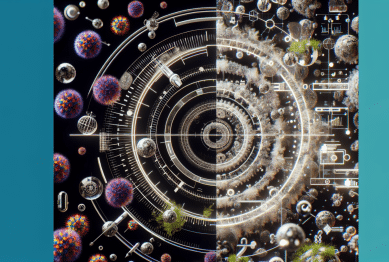Rest is no longer a luxury—it’s a necessity. As we continue to juggle busy lives and demanding schedules, more people are realizing that sleep and rest aren’t just about feeling less tired. They are a critical part of maintaining and enhancing overall health. In 2025, turning rest into a health strategy is gaining popularity and proving to be a game-changer for both physical and mental well-being..

Why Rest is a Health Strategy, Not Just Downtime
Rest is essential for the body’s ability to function optimally. It influences everything from improving heart health to boosting mental clarity. The importance of taking time to recharge cannot be overstated. A study by the National Sleep Foundation (2024) emphasizes the value of proper rest, linking it to better emotional regulation, improved immune function, and enhanced cognitive abilities.
The Connection Between Rest and Health
Rest affects various aspects of health, including:
- Physical Recovery: Adequate rest allows muscles and tissues to repair, which is especially important after exercise.
- Mental Health: Chronic sleep deprivation has been linked to increased risk of anxiety and depression.
- Productivity: A well-rested person is more focused, productive, and creative, helping to reduce burnout and improve efficiency.
1. Different Types of Rest: Choose What Works for You
To build an effective rest strategy, it’s important to understand the various forms of rest and their impact on your health. Rest is not just about sleeping—though sleep is the cornerstone. There are other types of rest that can greatly enhance your overall well-being.
A. Restful Sleep (The Foundation)
Rest is the most well-known form of recovery, but not all rest is equal. The stages of rest are crucial for proper recovery, with each playing a unique role. During a full sleep cycle, deep stages support muscle repair, while REM stages contribute to memory consolidation. To make rest a health strategy, aim for 7-9 hours of quality rest each night.
- Tip: Try to maintain a consistent sleep schedule to regulate your circadian rhythm. Using a sleep tracker can help measure sleep quality.
B. Mental Rest (Unwind for Mental Clarity)
Mental rest is just as important as physical rest. It allows your brain to process emotions, reduce stress, and prevent mental burnout. Digital detoxing is a key practice here—spending time away from screens and social media can help significantly.
- Tip: Consider taking breaks throughout the day to engage in relaxing activities such as meditation, journaling, or listening to soothing music.
C. Sensory Rest (Rest for Your Senses)
Constant exposure to noise, light, and screens can overwhelm your senses. Sensory overload can affect your concentration, mood, and even sleep. Sensory rest involves minimizing sensory inputs to allow your brain to reset.
- Tip: Create a sensory-friendly environment by using noise-canceling headphones, dimming lights, or even closing your eyes for a few minutes.
2. The Science Behind the Power of Rest
Rest doesn’t just feel good; it’s scientifically proven to improve health in many ways. According to Harvard Medical School (2025), rest supports brain function by helping with memory consolidation, emotional processing, and cognitive performance.
How Rest Affects Your Brain
- Memory and Learning: During sleep, the brain consolidates memories and processes information learned throughout the day. This improves cognitive abilities and enhances problem-solving skills.
- Emotional Well-being: Chronic rest deprivation has been linked to emotional instability and increased susceptibility to stress. A well-rested person can better handle challenges and bounce back from setbacks.
- Creative Thinking: Taking breaks and allowing the mind to rest fosters creativity. The brain makes new connections during rest, which can lead to fresh ideas and solutions.
3. Rest as a Productivity Hack
In today’s fast-paced world, many people view rest as unproductive. However, integrating rest into your daily routine can actually increase productivity in the long run. By taking short breaks, napping, and getting quality sleep, you’ll perform better, think more clearly, and experience less burnout.
A. Napping for a Mental Boost
The power of a quick nap is real. Studies show that taking a short 20-minute nap can improve memory retention, focus, and mood, making it a great productivity tool. In fact, the Journal of Sleep Research (2025) found that people who take regular naps are more likely to perform better in tasks requiring cognitive skills.
- Tip: A power nap between 1-3 pm can help recharge your energy levels, especially if you had a rough night of sleep.
B. Sleep Banking for Busy Days
Just like you would save money for a rainy day, you can “sleep bank” by getting extra rest before busy or stressful days. Sleep banking involves deliberately adding more sleep in the days leading up to an important event, like a presentation or a work deadline.
- Tip: Plan ahead by going to bed earlier for a few nights before a demanding day. This can help you perform better and feel more alert.
4. Tech Tools to Enhance Rest
In the digital age, technology has become an essential part of rest strategies. From sleep trackers to meditation apps, technology can help optimize your rest and overall health.
A. Sleep Rest (The Foundation)
Sleep is the most well-known form of rest, but not all sleep is equal. It is essential for the body’s recovery, and sleep cycles play an important role in this process. A full sleep cycle includes deep sleep (for muscle repair) and REM sleep (for memory consolidation). Focus on getting 7-9 hours of quality sleep each night to turn rest into a health strategy.
- Tip: Use sleep tracking apps that provide insights into your sleep cycle and offer recommendations for improving sleep quality.
B. Meditation and Relaxation Apps
Apps like Calm, Headspace, and Insight Timer provide guided meditation, deep breathing exercises, and sleep stories that can help you wind down before bedtime. These tools can help with mental and sensory rest, making them integral to your rest strategy.
- Tip: Set aside 10-15 minutes before bed for guided meditation to clear your mind and prepare for restful sleep.
5. Building Rest into Your Daily Routine
The key to making rest an effective health strategy is consistency. You don’t need to overhaul your life overnight, but small, intentional changes can lead to better health and productivity.
A. Start with Sleep Hygiene
Good sleep hygiene is essential for ensuring that the rest you get is of the highest quality. This involves creating a calm and comfortable sleep environment by:
- Keeping the room dark and cool.
- Limiting screen time before bed.
- Creating a consistent bedtime routine.
B. Prioritize Rest Breaks
If you find yourself overwhelmed with work or responsibilities, incorporate micro-rests into your routine. Short 5-10 minute breaks throughout the day—especially if you’re sitting for long periods—can prevent mental fatigue and improve focus.
C. Be Mindful of Your Rest Needs
Everyone has different rest needs based on age, activity level, and mental health. Some may need more deep rest, while others may benefit from regular naps or relaxation techniques. Pay attention to your body and adjust your rest strategy accordingly.
Conclusion: Rest Is a Health Strategy
Incorporating rest into your health strategy isn’t just about slowing down; it’s about understanding the value of recharging your body and mind. Whether it’s sleep, mental rest, or even short power naps, rest plays an essential role in your health, productivity, and overall well-being.
By embracing rest as a strategy, not only will you improve your physical and mental health, but you’ll also set yourself up for greater success, creativity, and long-term vitality.
References:
- National Sleep Foundation (2024). Sleep and Wellness. Available at: https://www.sleepfoundation.org
- Harvard Medical School (2025). The Science of Sleep. Available at: https://www.health.harvard.edu
- Journal of Sleep Research (2025). The Effectiveness of Naps. Available at: https://onlinelibrary.wiley.com









